- Home
- Paul Christopher
The Templar conspiracy t-4 Page 15
The Templar conspiracy t-4 Read online
Page 15
"Where are we going?" Peggy asked.
"To a place where the streets are paved with gold, my dear-twenty-four carat."
23
Seated at the counter in Gorman's Restaurant, Chief Randy Lockwood bit into his Denver sandwich. It was way past lunchtime but there'd been a minor drug bust at the high school that morning and the paperwork had taken him well into the afternoon.
An occasional dime bag of weed trickling down from the Quebec side of the border was one thing-he'd smoked and inhaled more than his share back in the sixties-but cocaine was something else again.
The locker bust had come on an anonymous tip, which meant it was one student ratting out another. By the time he'd gotten around to it, Tommy Horrigan, the owner of the locker in question, was in the wind. Making it worse was the fact that the kid had turned eighteen the week before, putting him in adult court whenever they managed to track him down.
Complicating matters for Lockwood was the fact that Mark Horrigan, the kid's old man, was chairman of the Wolf Run Golf and Country Club and the owner of Wolf Run Retirement Estates, an adult living development on the northern edge of town. A local bigwig. Going up against Mark Horrigan was not going to be pleasant. Horrigan was a shrimp with a severe case of short-man syndrome and far too much money. He'd been an obnoxious little bastard since grade school and nothing much had changed since.
Lockwood glanced out the big, half-steamed-over window and out onto Main Street. Anything moving by necessity had four-wheel drive. It was another one of those hell-born blizzards birthed somewhere in arctic Quebec for no good reason. Maybe it was one of the old Indian gods getting revenge for the arrival of the French in the 1500s. What had one of those early explorers called it? The Land God Gave to Cain. No kidding.
"Why does everybody in this town have to know everyone else?" said Lockwood. He put down the sandwich half and picked up his cup of coffee.
"That's what small towns are all about," said Reggie Waterman, wiping his steel hook on his apron. "Everybody knows how much money you've got in the bank, everyone is screwing or has screwed your wife at one time or another and everyone knows if you're using Viagra or not."
"Small towns suck," said Lockwood on the other side of the counter.
"Amen," said Waterman. "Speaking of which, Terry Jones over at the feed store says someone came in yesterday and bought eight hundred pounds of that Incitec fertilizer. Terry'd never seen the guy."
"Who needs eight hundred pounds of fertilizer in the middle of winter?" Lockwood asked, suddenly interested. The Oklahoma City bombing had used a ton of ammonium nitrate and diesel fuel to take out the Murrah Building, yet more than fifteen years later there were still no federal regulations about buying the stuff. A couple of states required identification to be shown but that was about it.
"He get any ID?"
"Maine driver's license."
Which didn't mean a damn thing. "He say why he wanted it?"
"Said he was from a big greenhouse operation in Brunswick. They got caught short, he said."
The Falls were a long way from Brunswick. Sixty miles or so. Surely there was some place closer to buy fertilizer.
"Which greenhouse?"
"He didn't say," answered Waterman. A group of kids from the Abbey School with skates slung over their shoulders swept in on a blast of frigid air. Reggie came out from behind the counter, took their orders for French fries with gravy and cheeseburgers, then came back and went to work at the grill. Streak Lockwood took another bite of his sandwich. Bad weather or not he was going to have to take a trip out to Terry Jones's place when he was done eating. Just in case.
They stepped inside a tumbledown boathouse, but instead of boats there were two canvas-covered lumps on the frozen surface of the water. Someone was already waiting for them, an alien figure taller than Moonblanket and wearing what appeared to be a space helmet and a suit made out of dangling white strips of fabric.
"I don't see any twenty-four-carat gold," said Peggy. "Just the Abominable Snowman here."
"Brandon Redboots-a friend of mine," explained the Mohawk.
The figure in the white gillie camouflage suit nodded silently.
The blizzard wind outside was rattling the walls and roof like the Big Bad Wolf. Moonblanket went to a locker and took out three sets of loose, drooping gillie suits in pure white.
"Put these on," the Mohawk said.
"I've never dressed up as a yeti," said Peggy, slipping her legs into the one-piece suit.
"When I was a kid there was a book called The Disappearing Bag," said Moonblanket. "That's exactly what these are."
"Hot," said Peggy, her voice muffled inside the suit.
"Not for long," said the Mohawk. He went back to the locker and brought out three full-face GMAX snowmobile helmets, once again in pure white. Holliday and Peggy jammed theirs on. Moonblanket stepped down onto the ice and pulled the canvas covers off the two lumps, revealing a pair of white snowmobiles.
"Arctic Cat Z1 Turbos," said Moonblanket. "Just about the fastest you can get."
"How fast?" Peggy asked.
"About a hundred and ten or so on a good ice surface."
"You're kidding, right?"
"We're usually going a little slower than that because we're towing cargo pods. Maybe sixty or seventy."
"Cargo pods?"
"Ask me no questions, I tell you no lies," said Moonblanket. "Peggy, you ride with me. Doc, you go with Brandon." Peggy dropped down onto the slick ice and climbed on behind Harry, who was straddling the front seat. Brandon Redboots got into the driver's position on the second machine. When they started up Peggy was surprised at how quiet they were and said so.
"Double mufflers on the engines. Polaris silent running chains and gears," answered Moonblanket.
"How long is this going to take?" Holliday asked.
"On a good day, maybe three minutes," said the Mohawk. "It's about a mile and a half all told. Five hundred yards to the island, which is still on the Canadian side, then a little less than a mile to Raquette Point on the U.S. side. The only danger is in the first minute-from here to the island. From the island to Raquette Point it's Akwesasne land. The Feds can't touch us."
"Don't they have tribal police?" Peggy asked, her voice blurred by the helmet but still understandable.
Harry Moonblanket pointed at the silent man sitting directly in front of Holliday. "Meet Chief Brandon Redboots of the Akwesasne Tribal Police." He laughed, gunned the engine and burst out through the open front of the old boathouse. Without a word Redboots followed them out into the whirling snow.
The wind roared all around them as they raced across the frozen river channel, the cold steadily leaking through the suit and then Peggy's ski jacket. Within thirty seconds she was freezing, teeth chattering inside the helmet. Suddenly, out of the corner of her vision she saw a shadow racing beside them, perhaps fifty yards away. She wouldn't have seen anything if the other snowmobile hadn't been bright yellow with a pulsing blue-and-red light on a short mast. It was slowly sliding in their direction. In front of her Harry Moonblanket let out a high-pitched yell and then a string of incomprehensible words that Peggy assumed were the Mohawk equivalent of swearing. She turned her head and saw a second blue-and-red light on their right.
"Who are they?" Peggy asked, yelling into the side of the Mohawk's helmet.
"Mounties!" Harry yelled back. "The river's federal property! Hang on!" The Mohawk twisted the throttle and they surged forward, almost tipping Peggy off the back of the racing machine. The pulsing lights were getting closer. She had a flashing memory of some old movie with a Mountie singing on a horse and knew there'd be no singing cops out here. Directly ahead of them an angled ramp of packed snow appeared.
Harry hit the ramp at full speed, with Holliday and Redboots right behind them. Trees appeared at the top of the ramp and Peggy realized they were on land once again. Almost immediately Moonblanket throttled back and slowed. A hundred yards farther on in the gully he stoppe
d and let Redboots come up beside him.
"Old Panthers," grunted Redboots speaking for the first time, his visored face invisible.
"What's he talking about and why have we stopped?" Peggy asked urgently, looking back over her shoulder for the telltale red-and-blue flashing lights. There was nothing but blowing snow. "Where are the Mounties?"
"This is Cornwall Island," said Moonblanket, sitting in front of her. "Akwesasne land. The Mounties can't set foot on the place without asking our permission and Brandon's not likely to give it under the circumstances."
Chuckling, Redboots began to sing in a low, guttural voice: "Teiohonwa:ka ne'ni akhonwe:ia Kon'tatieshon iohnekotatie Wakkawehatie wakkawehatie."
"What's he saying?" Peggy asked.
"It's his favorite song about paddling his canoe. He always sings when he beats the Flat Hats."
"The Flat Hats?"
"The Red Jackets, the Mounties," explained Moonblanket.
"How did they know we'd be there?" Holliday asked seriously.
"Billy phoned them up and told them. He's the tribe's official confidential informant."
"Your nephew?"
"Sure. The Akwesasne survive on smuggled cigarettes. We even own our own tobacco farms. It's in the treaty from about two hundred years ago. Sometimes we get some serious criminal types down from Montreal, bikers mostly, try to horn in on our business. Billy informs on them. Makes a few bucks for himself. He goes to university now, so he needs the bread."
"He did it on purpose?" Peggy asked.
"Sure. I told him to. We're on Z1 Turbos. The Flat Hats use old Panther 440s. If we'd been dragging a pod of smokes they maybe coulda caught us, but not with one passenger each. No contest."
"It scared the hell out of me," said Holliday.
"Speaking of which," said Peggy, "can we get to where we're going to sometime soon? I have to pee."
Morrie Adler sat on one of the couches in the Oval Office and waited for the president to calm down. Outside the tall, bulletproof windows it was a winter-wonderland postcard, everything covered in a disguising mantle of snow.
"I won't do it!" the president steamed. He'd been a secret smoker until a secret checkup had told him in no uncertain terms that he'd better become a secret quitter, which he had, but the side effects of nicotine withdrawal were secretly making him very testy. It occurred to Morrie that wars could be declared or escalated on the basis of the president's physical condition. There was no doubt in his mind that Roosevelt would have done better at Potsdam if he'd felt better, and whether people liked to admit it or not the last couple of years of Ronald Reagan's term, the White House and the country had been run by his staff.
"They're plugging a hole," said Adler. "Nothing more."
"They're not plugging a hole; they're reading polls," said the president.
"Sinclair's the all-out favorite for the job." Adler shrugged. "You've put off appointing a vice president for too long already, kemo sabe. Make your choice or do what the party wants, but do it fast."
"You mean do what that psychopath Kate Sinclair wants," snorted the president. "From what I hear, she's been whoring herself all over Capitol Hill for two weeks now, kissing asses, gathering in favors and blackmailing what's left over."
"It's what the country wants, as well," said Adler. "Ever since you know who was in this office the nation's been polarized; there is no center line. That's a tightrope you can't walk along anymore. The people want guns and butter, give them guns and butter."
"I'll think about it," said the president.
"Think fast," said Adler. "Time's a-wasting."
24
Bedford Mills, Virginia, was the perfect western Virginia town. Main Street really was called Main Street, the churches all had snow-white steeples and the redbrick courthouse in the middle of town had a white cupola and a bell that was once used to call out the volunteer fire department.
The population of Bedford Mills was slightly more than five thousand and more than two-thirds of the adult males owned rifles. Almost the same percentage owned handguns and half of them owned fly rods for catching trout in the cool, clear streams that fed White Mountain Lake. There were no Hispanic families in Bedford Mills and only a very small percentage of the population was African American. There was one family of Chinese descent, Ross and Katie Wong and their kids, but they were fourth-generation American.
The biggest employer in the town was Savage Trucks, which custom built water tankers, milk tankers, dump bodies and sanitation trucks. The other major employer was the Wolf Ridge Distillery, which made a variety of specialty liquors, the most popular being Stonewall 12-Year-Old Bourbon. All in all, safe territory for Senator Richard Pierce Sinclair to have a town hall meeting on the coming threat of domestic terrorism in America.
The town hall itself was located on South Tower Street on the far side of the old Norfolk and Western tracks. It was only a few minutes' walk from the old Liberty Depot, which was now a family restaurant with cute menu items listed under titles like Main Line, Water Towers and Cabooses.
Once upon a time the town hall had been home to the Bedford Mills Klavern of the Ku Klux Klan. It was briefly used as a headquarters building by Stonewall Jack-son during the Civil War, and eventually became the local Mason's Lodge. The Masons faded away in the area, and in its final incarnation it was used as a recreation center by the Knights of Pythias.
Try as they might the Pythians couldn't keep up with the slow decay of the 150-year-old building and it was finally rescued by the Bedford Mills Historical Society, which bought it for a dollar, then brought it back to its former glory, then handed it over to the town. The ground floor was now the town library while the second-floor stage and auditorium were sometimes used for local theater productions, award presentations by local service clubs and events exactly like the one taking place this evening.
The original dressing rooms were located behind the stage and had been redecorated from the burlesque era for some unknown reason. There were posters of Fanny Brice everywhere and a couple of Moulin Rouge posters, as well. Each of the three dressing rooms had a small couch, a rotating makeup chair and a wall-to-wall mirror.
Kate Pierce had chosen the middle of the three rooms and had waited on the couch while Chelsea, the hired movie hair and makeup girl, made her son look even more senatorial than he was. She added salt-and-pepper highlights to his temples and a few age crinkles around the eyes for wisdom, and then helped him insert the gray contact lenses that dignified his washed-out blue eyes.
As a final touch Sinclair's mother handed her son a very up-to-date pair of cherry-red half-glasses to pull from his pocket when he was reading something or appearing to, even though at forty-six he still had twenty-twenty vision. When Kate was satisfied with her son's appearance she gave the hair and makeup girl a hundred dollars and dismissed her.
"Is all of this really necessary, Mother?"
"It's television, dear," answered the elderly woman. "If Nixon had worn a little pancake that night in Chicago things might have gone very differently."
"Local?"
"Network, cable, bloggers, the New York Times. Fox, looking for blood. The message is beginning to get through, darling, just as I knew it would."
"I'm still not sure about this, Mother," said the senator, a worried expression on his perfectly made-up face. "With the Pope being assassinated and the vice president dying… There's been so much violence, I don't think I should look as though I'm advocating more."
"Not advocating, dear; warning about it. Our borders are like sieves; the economy is in the sewer; the poor, the homeless and the unemployed are at the end of their rope. There's bound to be a groundswell of grassroots violence that will spread through the country like wildfire unless something is done about it, and quickly." Since Kate Sinclair wrote her son's speeches it wasn't surprising that she could quote from them at length.
"That's like asking for martial law. A dictatorship," argued the senator.
"We're not a
sking for either one. We're asking for the strong America of the past. Better security. Vigilance. The ability to find our enemies and destroy them before they do the same to us."
"How about something like this," suggested the senator, the timbre of his voice adopting its senatorial edge. "Guantanamo was a failure because we didn't annex the whole damn island during the Spanish-American War and Kennedy didn't have the courage to invade properly at the Bay of Pigs in 'sixty-one. As for the Japanese, it's been almost seventy years since Pearl Harbor. It's ancient history and so are the internment camps. If a reporter or anyone else asks about places like Manzanar, we counter with Changi in Singapore."
"Excellent." Kate Sinclair beamed.
"When is it scheduled to happen?" the senator asked.
"Better if you don't know exactly, dear. It will seem more natural."
"He knows what to do?"
"He's the best," assured the senator's mother.
"And when it happens?"
"Act the part," said Kate Sinclair. "Sic semper tyrannis but with a happy ending."
The auditorium had seating for a 180 people and standing room under the balcony for 60 more. The balcony itself had long ago by default turned into a storage area for old props and costumes, since the hall was rarely used for theatrical productions now that the Mountain View Cinema had closed down and was the home of the Bedford Little Theater.
Tonight the auditorium was packed, mostly with locals but also with reporters and cameramen from all the national networks and newspapers. In the time since the assassination of the Pope and the death of the vice president, Senator Richard Pierce Sinclair had gone from being an obscure albeit handsome junior senator with a strident message that almost never made the news to a pundit on CNN when it came to issues of terrorism. He was a regular guest on everything from Meet the Press to Glenn Beck's TV and radio shows, and "author" of an upcoming book titled American Terror, which had already been accepted for publication by Regnery Publishing, the foremost conservative publisher in the nation.

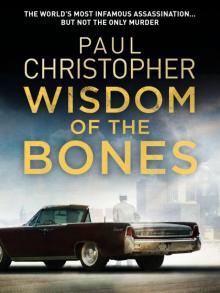 Wisdom of the Bones
Wisdom of the Bones The House of Special Purpose
The House of Special Purpose The Second Assassin
The Second Assassin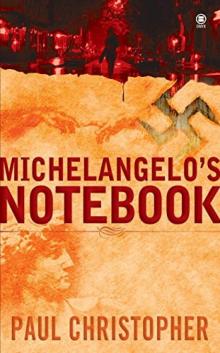 Michelangelo's Notebook
Michelangelo's Notebook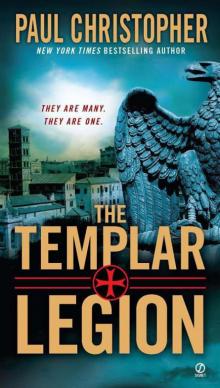 Templar Legion
Templar Legion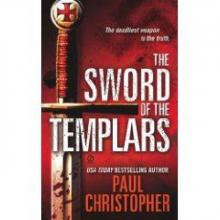 The Sword of the Templars t-1
The Sword of the Templars t-1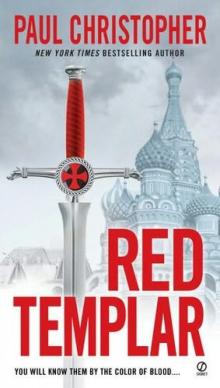 Red Templar
Red Templar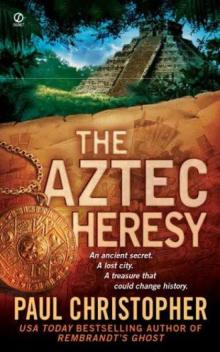 The Aztec Heresy
The Aztec Heresy The Templar Legion
The Templar Legion Rembrandt's Ghost
Rembrandt's Ghost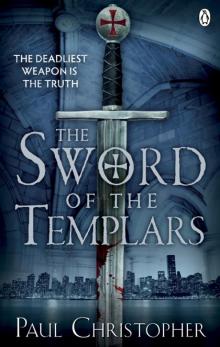 Sword of the Templars
Sword of the Templars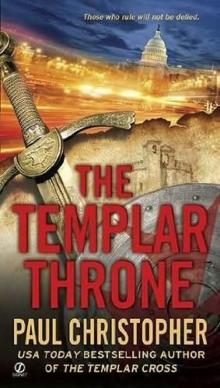 The Templar throne t-3
The Templar throne t-3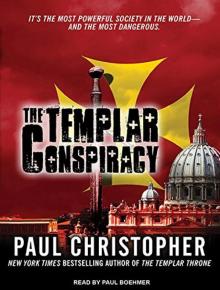 The Templar Conspiracy
The Templar Conspiracy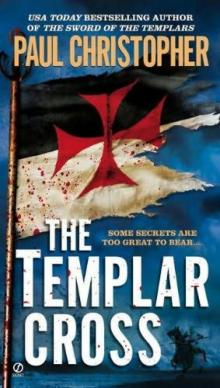 The Templar Cross t-2
The Templar Cross t-2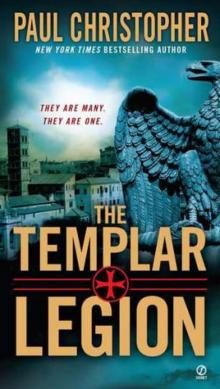 The Templar Legion t-5
The Templar Legion t-5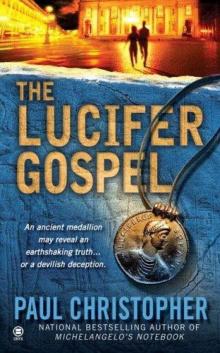 The Lucifer Gospel
The Lucifer Gospel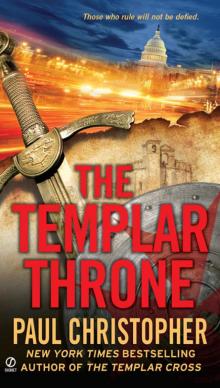 Templar Throne
Templar Throne Michelangelo_s Notebook fr-1
Michelangelo_s Notebook fr-1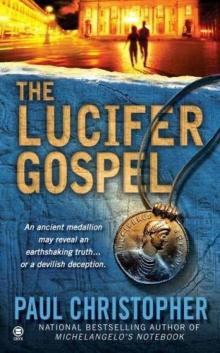 The Lucifer Gospel fr-2
The Lucifer Gospel fr-2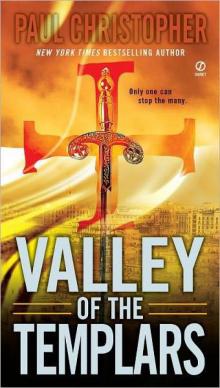 Valley of the Templars ts-7
Valley of the Templars ts-7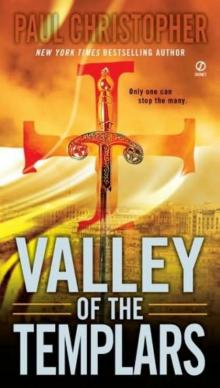 Valley of the Templars
Valley of the Templars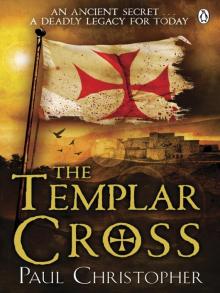 Templar Cross
Templar Cross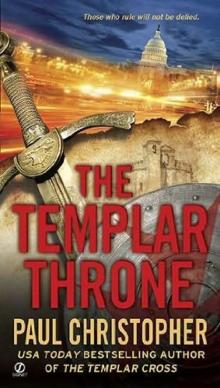 The Templar Throne
The Templar Throne The Templar Cross
The Templar Cross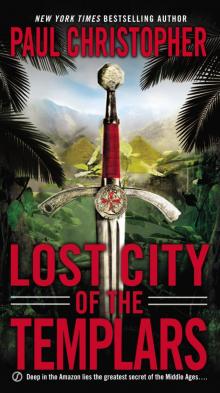 Lost City of the Templars
Lost City of the Templars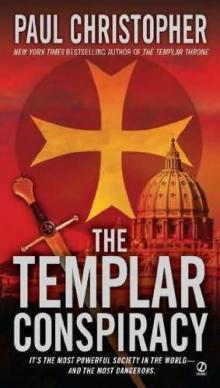 The Templar conspiracy t-4
The Templar conspiracy t-4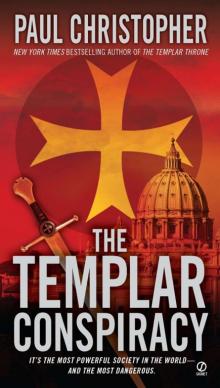 Templar Conspiracy
Templar Conspiracy